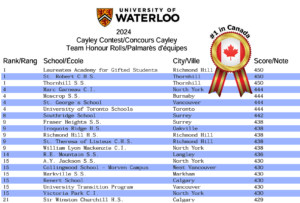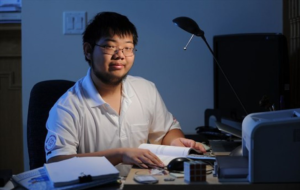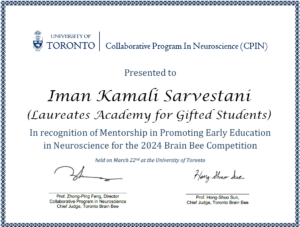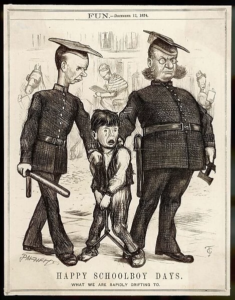- Introduction:
The Laureates Academy Math and Computing Club is a year-round program designed to nurture the talents of students in kindergarten (age 4) through grade 12 (age 18) with a strong passion for mathematics and computer science. The club offers a flexible learning model, allowing students to participate in person, virtually, or through a hybrid approach. The club boasts a proud history of success, with its teams consistently achieving impressive results in various mathematics competitions. To view a list of our recent championship titles, please visit our Hall of Fame and Awards and Recognitions pages.
Apply Now!
- Objectives
The Laureates Academy Math and Computing Club strives to achieve the following objectives:
- Foster: Cultivate and encourage students’ interest and passion for mathematics and computing.
- Enhance: Equip students with the necessary knowledge and skills to maintain high academic performance in mathematics.
- Prepare: Train and equip students to compete successfully in regional and international mathematics and computing competitions.
Additional details regarding the benefits of competition participation are available in the ‘Contests’ section below. This section provides a comprehensive list of competitions scheduled for student participation during the current academic year.
Apply Now!
- Curriculum
The Laureates Academy Math and Computing Club offers a meticulously designed curriculum that caters to students across various age groups (kindergarten through grade 12). This comprehensive curriculum focuses on developing a strong foundation in all essential mathematical and computational skills. The curriculum covers traditional mathematical subjects found in standard school curricula, including Arithmetic, Algebra, Calculus, Geometry, Trigonometry, Probability, and Statistics. Beyond core subjects, the program delves into less common but crucial areas like Number Theory, Graph Theory, Set Theory, Logic, Group Theory, Theory of Algorithms, 3D Geometry, Spatial Reasoning, Combinatorics, Data Science, Artificial Intelligence, and Neural Networks. To foster a stimulating learning environment, the curriculum integrates a variety of engaging activities and games. These include constructive exercises using Lego pieces and origami, programming experiences with Scratch and Python, and problem-solving ventures involving puzzles, Sudokus, Rubik’s cubes, card games, board games, and other enjoyable activities.
The Laureates Math Club curriculum is designed by drawing inspiration from various educational systems worldwide, including Singapore, China, Vietnam, Korea, Russia, Bulgaria, Iran, Egypt, and the British, Australian, and American frameworks. This unique blend of traditional mathematical education and engaging activities solidifies our program’s position as a leading math and computing initiative in North America.
Apply Now!
- Levels and Placement
The Laureates Academy Math and Computing Club program is divided into 14 distinct levels, Basic Levels (A-F), Intermediate Levels (G-J) and Advanced Levels (K-N).
Upon program entry, students undergo an initial assessment to determine the most suitable level for their current abilities. A second assessment is conducted within the first two weeks to finalize placement. Existing students are evaluated by their teachers to determine readiness for progression to the next level. It is important to note that placement is based on internal evaluations and a student’s demonstrated skills, rather than solely on age or academic grade. This allows for classes with students of various age groups who share similar abilities. Instructors provide comprehensive guidance to both students and parents regarding appropriate contest selection. This guidance takes into account each student’s unique strengths and abilities.
Apply Now!
- Schedule
The program requires students at each level to attend two weekly classes, as outlined in the current schedule. This schedule is available for review and may be subject to adjustments during the academic year to reflect a student’s potential progression to a different level within the program.
| Level | Days | Time |
| Levels A and B | Tuesdays and Fridays | 15:45 to 17:00 (EST) |
| Levels C and D | Tuesdays and Fridays | 15:45 to 17:00 (EST) |
| Levels E and F | Tuesdays and Fridays | 15:45 to 17:00 (EST) |
| Levels G and H | Tuesdays and Fridays | 15:45 to 17:00 (EST) |
| Levels I and J | Mondays and Thursdays | 17:00 to 18:15 (EST) |
| Levels K and L | Mondays and Thursdays | 18:30 to 19:45 (EST) |
| Levels M and N | Tuesdays and Fridays | 18:30 to 19:45 (EST) |
Apply Now!
- Class size
The Laureates Academy Math and Computing Club utilizes a hybrid instructional approach, effectively combining in-person and online learning methodologies. This approach fosters flexibility and caters to diverse learning styles. To maximize individual attention and enhance learning, each class is capped at a maximum of 15 students. It is important to note that most classes typically operate with significantly smaller student numbers than the maximum capacity.
Apply Now!
- Measures of Achievement and Homework Assignments
Students follow a comprehensive weekly curriculum designed to reinforce the concepts covered in class. Homework assignments and projects are strategically integrated to solidify understanding. Throughout the academic year, teachers administer regular quizzes to monitor student progress. Students take monthly official benchmark tests throughout the year. These test results, along with factors like class participation and homework completion, form the primary basis for evaluating a student’s readiness to progress to a higher level. The program strives for continuous improvement, aiming for positive outcomes in both regular school mathematics and internal assessments, as well as external competitions. If a student experiences difficulty advancing, the instructors will work collaboratively with the student and parents to identify and address any underlying challenges.
Apply Now!
- Calendar
Here’s the text rephrased in a more formal standard academic way: Laureates Academy Math and Computing Club – Program Schedule The Laureates Academy Math and Computing Club operates year-round, with brief breaks during summer, winter, and spring, and on designated holidays. The annual schedule consists of 80 sessions (76 lectures and 4 competition days). Each session lasts 1 hour and 15 minutes. Please refer to the following document for a list of scheduled holidays for the upcoming year:
| Days Off | Day | Start Date | End Date |
| PA Day | Monday | 15-Jan-24 | |
| PA Day | Friday | 19-Jan-24 | |
| PA Day | Monday | 29-Jan-24 | |
| PA Day | Friday | 02-Feb-24 | |
| Family Day | Monday | 19-Feb-24 | |
| March Break | Monday | 11-Mar-24 | 22-Mar-24 |
| Good Friday | Friday | 29-Mar-24 | |
| Easter Monday | Monday | 01-Apr-24 | |
| PA Day | Monday | 06-May-24 | |
| PA Day | Friday | 10-May-24 | |
| Victoria Day | Monday | 20-May-24 | |
| PA Day | Friday | 07-Jun-24 | |
| Canada Day | Monday | 01-Jul-24 | |
| July Break | Tuesday | 02-Jul-24 | 12-Jul-24 |
| Civic Holiday | Monday | 05-Aug-24 | |
| PA Day | Friday | 09-Aug-24 | |
| August Break | Monday | 19-Aug-24 | 30-Aug-24 |
| Labour Day | Monday | 02-Sep-24 | |
| PA Day | Tuesday | 03-Sep-24 | |
| PA Day | Friday | 27-Sep-24 | |
| National Day for Truth and Reconciliation | Monday | 30-Sep-24 | |
| Thanksgiving | Monday | 14-Oct-24 | |
| PA Day | Friday | 18-Oct-24 | |
| Halloween | Thursday | 31-Oct-24 | |
| PA Day | Friday | 15-Nov-24 | |
| New Year | Monday | 16-Dec-24 | 03-Jan-24 |
Apply Now!
- Discounts and termination
The program may offer additional discounts based on specific criteria. Please refer to the program brochure or website for details. Termination of agreement: Students or their parents must provide one month’s written notice to terminate the program agreement. Deposited funds are non-refundable. Upon termination, future payments will cease.
Apply Now!
- Why contests?
Engaging in math and computing contests provides numerous benefits for students, particularly those with a passion for these subjects. Participating in these competitive events can be likened to athletes competing in tournaments or musicians performing in competitions, offering an exciting and challenging environment to showcase their skills. The Laureates Academy Math and Computing Club strives to nurture this passion and equip students with the necessary skills to excel in these domains. Contest preparation can significantly enhance a student’s:
- Confidence and self-belief: Preparing and participating in competitions can instill a sense of self-assurance and belief in one’s abilities. The club’s history of success in regional and international contests further fosters a sense of pride and community within the program.
- Problem-solving and critical thinking skills: Contests typically require creative approaches and strategic problem-solving, contributing to the development of valuable cognitive skills.
- Collaboration and teamwork: Working with peers towards a common goal fosters collaborative skills and a sense of community among students with shared interests in STEM (Science, Technology, Engineering, and Mathematics).
- Academic preparation: Contest preparation reinforces mathematical and computational knowledge and skills, ultimately enhancing a student’s academic profile. Universities often seek students with demonstrably strong math and computing skills, and participation in these contests can provide evidence of a student’s commitment and ability. While mere participation offers advantages, achieving outstanding results represents a significant accomplishment. This benefit extends to students of all ages, as success often requires years of dedicated practice and preparation.
Apply Now!
- Writing Contests
The Laureates Academy Math and Computing Club actively encourages student participation in various contests. These contests are facilitated through the Academy’s institutional accounts, ensuring a streamlined registration process for students. The annual club membership fee covers the registration costs for these contests, eliminating any additional financial burden for participating students. Our teams have a distinguished history of success in a wide range of competitions. By joining these contests as part of our program, students gain valuable experience and the opportunity to contribute to collective achievements alongside individual successes. A list of potential contests scheduled for the upcoming academic year is available [link to the list]. Please note that this list may be subject to change, with additional contests potentially being included or removed. Some dates are approximate and are subject to change as we approach the contests. Students and their parents will be informed of potential changes well in advance.
| Contest | Test Dates | Attending Audience | G1 | G2 | G3 | G4 | G5 | G6 | G7 | G8 | G9 | G10 | G11 | G12 |
| Euclid Contest | 03-04-2025 | G12 | ♦ | |||||||||||
| Fryer Contest | 04-04-2025 | G9 | ♦ | |||||||||||
| Galoise Contest | 04-04-2025 | G10 | ♦ | |||||||||||
| Hypatia Contest | 04-04-2025 | G11 | ♦ | |||||||||||
| Gauss Contest | 15-05-2025 | G7-8 | ♦ | ♦ | ||||||||||
| Canadian Open Mathematics Challenge | 24-10-2025 | G9-G12 | ♦ | ♦ | ♦ | ♦ | ||||||||
| Beaver Computing Challenge | 04-11-2025 to 15-11-2025 | G5-10 | ♦ | ♦ | ♦ | ♦ | ♦ | ♦ | ♦ | |||||
| Canadian Intermediate Math Contest | 13-11-2025 | G9-10 | ♦ | ♦ | ||||||||||
| Canadian Senior Math Contest | 13-11-2025 | G11-12 | ♦ | ♦ | ||||||||||
| Canadian Mathematical Gray Jay Competition | 14-11-2025 | G5-8 | ♦ | ♦ | ♦ | ♦ | ||||||||
| CMO Qualifying Repêchage | 31-01-2025 to 07-02-2025 | G9-12 | ♦ | ♦ | ♦ | ♦ | ||||||||
| Canadian Computing Competition | 21-02-2025 | G9-12 | ♦ | ♦ | ♦ | ♦ | ||||||||
| Pascal Contest | 28-02-2025 | G9 | ♦ | |||||||||||
| Cayley Contest | 28-02-2025 | G10 | ♦ | |||||||||||
| Fermat Contest | 28-02-2025 | G11 | ♦ | |||||||||||
| Canadian Mathematical Olympiad | 07-03-2025 | G9-12 | ♦ | ♦ | ♦ | ♦ |
Apply Now!
Canadian Champion
Despite our size, we do compete with the giants, and WE WIN! Year after year, our dedicated students and passionate faculty consistently punch above their weight, achieving remarkable results in national and international competitions. We’ve consistently defeated established, well-resourced schools, both public and private, proving that a nurturing environment and a focus on individual potential can produce truly exceptional outcomes. Join our vibrant community and be part of a school that redefines what’s possible!
Summer Camp
Is your summer symphony missing a crescendo of creativity and a chorus of cheers? At Laureates Academy’s summer camps, the canvas is vast and the playing field boundless! Unleash your inner artist and athlete in a vibrant exploration of self-expression and friendly competition. Whether wielding a paintbrush or a soccer ball, our camps ignite a passion for artistic discovery and athletic prowess. So ditch the monotonous score and join the harmonious movement of summer fun at Laureates Academy!
Alex Song
Story of a Canadian prodigy
A mathematical prodigy like Zhuo Qun (Alex) Song doesn’t come along every day. But what drove this Canadian mind to pursue his education in the United States during his middle school? Does the current educational system in Canada offer sufficient challenges for the most gifted students? Delve deeper into Alex’s story and explore the crucial question: Is Canada equipped to nurture exceptional talent? Read the full article on our Laureates blog!
Laureates Academy and University of Toronto
Dr. Iman Kamali Sarvestani, Laureates Academy’s esteemed principal, shares a personal and inspiring story in this blog post. Delve into his rewarding reunion with the University of Toronto’s Collaborative Program in Neurosciences (CPIN), and discover how a past dedication to fostering young minds has blossomed into a renewed partnership. Read on to celebrate Dr. Kamali’s achievements and discover exciting news about her future endeavors in neuroscience education!
AI vs Gifted Human
Feeling threatened by your toaster’s newfound chess prowess? Worried your cubicle-mate might be a particularly well-dressed Roomba? Fear not, fellow humans! This blog post explores how the rise of artificial intelligence, while potentially rendering some jobs as obsolete as a rotary phone, might actually benefit the brilliant minds cultivated in gifted education programs. So, ditch the existential dread and dive in! Discover how AI could become your personal assistant, not your robotic overlord. Just remember, while the machines may be learning, it’s the human imagination that will truly reign supreme.
Emotional Intelligence, Social Intelligence and more

Feeling like your child’s brilliance is a comet streaking through the academic void, dazzling but headed for an isolated crash landing? Fear not, fellow guardians of giftedness! This blog post delves into the importance of nurturing social and emotional intelligence alongside raw intellectual ability. Unearth innovative methods to cultivate well-rounded young Einsteins who can not only solve complex equations but navigate the complexities of social interaction with equal aplomb. Head over to the Laureates Blog for the full symphony of wisdom, and discover how to empower your child’s mind to not just launch, but to truly orchestrate a life of success!
Arts, Sports Recreation and Creativity
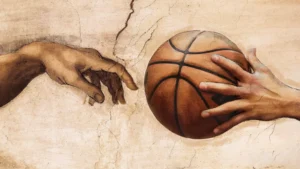
Feeling like your child’s brain is a dusty textbook, desperately in need of a splash of color and a dash of movement? This blog post argues that arts and sports education are not just frills, but vital instruments in the orchestra of learning! Discover how painting a masterpiece can illuminate the wonders of geometry, and how perfecting that free throw can improve problem-solving skills. Head over to the Laureates Blog to learn more
Apply Now!

Feeling like Alice tumbling down a rabbit hole of standardized tests and soul-crushing curriculums? Is your current classroom more Lord of the Flies than lively learning environment? Then ditch the doldrums and step into our whimsical wonderland of academic exploration! Here, curiosity isn’t a character flaw, it’s the key that unlocks a world of knowledge more exciting than a dragon’s hoard. So, chuck the textbooks (figuratively, of course – we still value the classics!), grab your thirst for adventure, and apply today! We promise an education less “Moby Dick” and more “Much Ado About Nothing” (well, maybe a little healthy academic competition, but mostly the fun kind!).
Modern Curriculum For a New Era
At Laureates Academy, our curriculum isn’t a one-size-fits-all approach. We offer a stimulating and dynamic learning experience designed to challenge and engage gifted minds. Going beyond rote memorization, our curriculum delves deeper into subjects, fostering critical thinking skills and a passion for exploration. Through smaller class sizes, personalized attention, and a project-based approach, we unlock the full potential of each student, empowering them to become independent learners and future leaders in their chosen fields.
Compulsory Education
In 1739, Denmark became the first nation to declare education not a privilege, but a compulsory waltz for all its young minds. Soon, a domino effect swept across Europe and into the eager arms of North America. But with this shift from right to responsibility, a thorny question sprouted: who gets to craft the curriculum, the grand symphony of knowledge our children learn? Should the state be the domineering conductor, or should parents hold the sheet music close, whispering its lessons? This age-old debate continues to resonate, a discordant note in the otherwise harmonious pursuit of learning. Head over to the Laureates Blog to explore the fascinating melody of this ongoing conversation!

